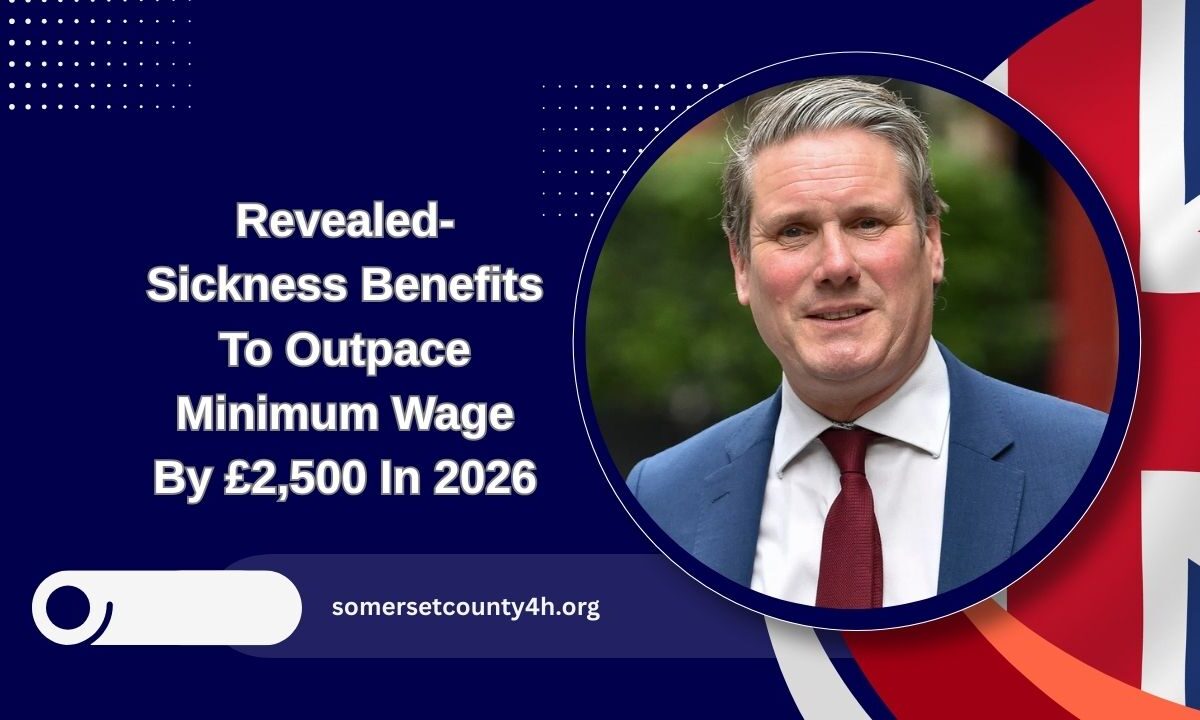A recent analysis has revealed a growing financial gap between benefit recipients and full-time workers in the UK.
According to findings from the Centre for Social Justice (CSJ), individuals on sickness-related welfare support are projected to receive £2,500 more annually than full-time workers on the national minimum wage by the 2026/27 tax year.
This revelation has sparked widespread debate on welfare generosity, fairness, and incentives to work.
Welfare vs. Minimum Wage: Breaking Down the Numbers
The analysis lays out a compelling comparison of net income between two groups:
| Category | Annual Net Income (2026/27) |
|---|---|
| Universal Credit + PIP + Housing Support | £25,000 |
| Full-Time Worker on National Living Wage | £22,500 |
| Single Parent on Sickness and Child Benefits | Up to £37,000 |
A person receiving Universal Credit, Personal Independence Payment (PIP) due to illness, and housing benefit, without being employed, is expected to receive £25,000 a year.
In contrast, someone employed full-time on minimum wage will take home £22,500 after deductions, such as income tax and National Insurance.
Generosity of the UK Welfare System
These findings highlight the generosity of the current welfare structure, particularly for those with health conditions.
The generous benefit entitlements reflect the government’s efforts to support vulnerable individuals, but have also reignited concerns over work disincentives.
This financial disparity comes in the wake of Labour leader Sir Keir Starmer’s recent changes to the Welfare Reform Bill, which previously proposed £5 billion in cuts to disability support.
Single Parents Could Receive Up to £37,000
The CSJ study also highlighted that single unemployed parents with mental health conditions such as anxiety, raising children with ADHD or other special needs, could receive up to £37,000 annually in combined benefits.
This includes child support, disability allowances, and housing assistance—a figure far exceeding the earnings of many working families.
Concerns from Former Ministers and Policy Experts
Former Work and Pensions Secretary Sir Iain Duncan Smith voiced concern about the findings. He noted that pre-pandemic, the UK had a record low number of workless households, but this trend has reversed.
He stated, “Since COVID-19, the structure of the benefits system has created strong disincentives to seek employment.”
Policy experts like Joe Shalam from the CSJ echoed these concerns. While acknowledging the importance of supporting people unable to work, Shalam warned that the system might be trapping individuals in long-term dependency, thereby limiting their potential and damaging economic productivity.
The revelation that people on sickness benefits could earn £2,500 more than full-time minimum wage earners underscores a growing imbalance in the UK’s welfare and wage system.
While welfare support remains vital for many, this widening income gap may unintentionally discourage employment and raise urgent policy questions about work incentives and long-term sustainability.
FAQs
How much can a person on sickness benefits receive in 2026/27?
A person on Universal Credit, PIP, and housing support can receive around £25,000 annually, surpassing a full-time worker on minimum wage.
What is the projected net income for a full-time worker on the national living wage?
A full-time worker earning the national minimum wage is expected to take home £22,500 after tax and deductions.
Why is there concern about this income disparity?
Experts fear this income gap could discourage people from seeking employment and create a cycle of welfare dependency.

